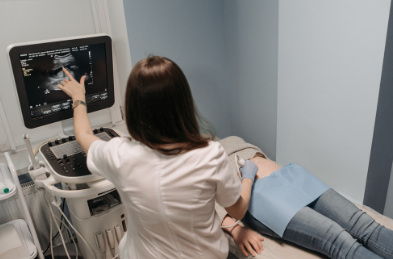What You Need to Know About Ovarian Cancer Screening in Jackson, Mississippi
Understanding Early Detection to Protect Your Health

Ovarian cancer is often referred to as a "silent killer" because its symptoms can be subtle or mistaken for less serious conditions. Early detection through proper screening is crucial for improving outcomes. For women in Jackson, Mississippi, understanding the importance of ovarian cancer screening empowers you to take control of your health and recognize when it’s time to seek medical advice.
What Is Ovarian Cancer?
Ovarian cancer starts in the ovaries, the reproductive glands that produce eggs and hormones like estrogen and progesterone. Though it’s less common than some other cancers, it is one of the most deadly gynecologic cancers due to often being diagnosed late.
Symptoms can include bloating, pelvic or abdominal pain, frequent urination, or changes in appetite—though these signs are often vague and easy to overlook.
Who Should Consider Screening?
Currently, routine ovarian cancer screening is not recommended for women at average risk because standard screening tests have limitations. However, screening may be advised for women with higher risk factors, such as:
1. A strong family history of ovarian or breast cancer
2. Genetic mutations like BRCA1 or BRCA2
3. Personal history of certain cancers or conditions
4. Ashkenazi Jewish heritage, which is linked to higher risk
If you fall into these categories, your doctor may recommend regular screening and genetic counseling.
Common Screening Methods
Two main methods are used for ovarian cancer screening:
1. Transvaginal Ultrasound (TVUS): A small probe is inserted into the vagina to create images of the ovaries. It can detect abnormal growths or masses but cannot definitively diagnose cancer.
2. CA-125 Blood Test: Measures the level of CA-125, a protein that can be elevated in ovarian cancer. However, CA-125 can also be raised in benign conditions like menstruation, endometriosis, or pelvic infections, so it’s not used alone for diagnosis. Because these tests can produce false positives and negatives, they are most effective when combined with clinical evaluation and risk assessment.
The Importance of Regular Check-Ups
Even without screening tests, regular gynecologic exams remain crucial. Reporting persistent symptoms such as bloating, pelvic pain, or changes in urinary or bowel habits can lead to earlier investigations.
Your healthcare provider may use imaging or lab tests if they suspect abnormalities, especially in women with risk factors.
Advances and Future Directions
Research is ongoing to develop more accurate screening tools, including new blood markers and genetic tests. Liquid biopsies and imaging improvements hold promise for earlier detection in the future.
Until then, awareness and proactive communication with your healthcare team are the best defenses.
What You Can Do Now
- Know your family history and share it with your doctor
- Pay attention to persistent symptoms lasting more than two weeks
- Maintain regular health check-ups and discuss any concerns openly
- Consider genetic counseling if you have risk factors
Ovarian cancer screening can be confusing, but understanding the current guidelines empowers you to make informed decisions. Early detection saves lives, and staying alert to changes in your body is a vital first step.
Have questions about ovarian cancer or screening? Feel free to leave a comment or reach out for more information. Your health matters!




